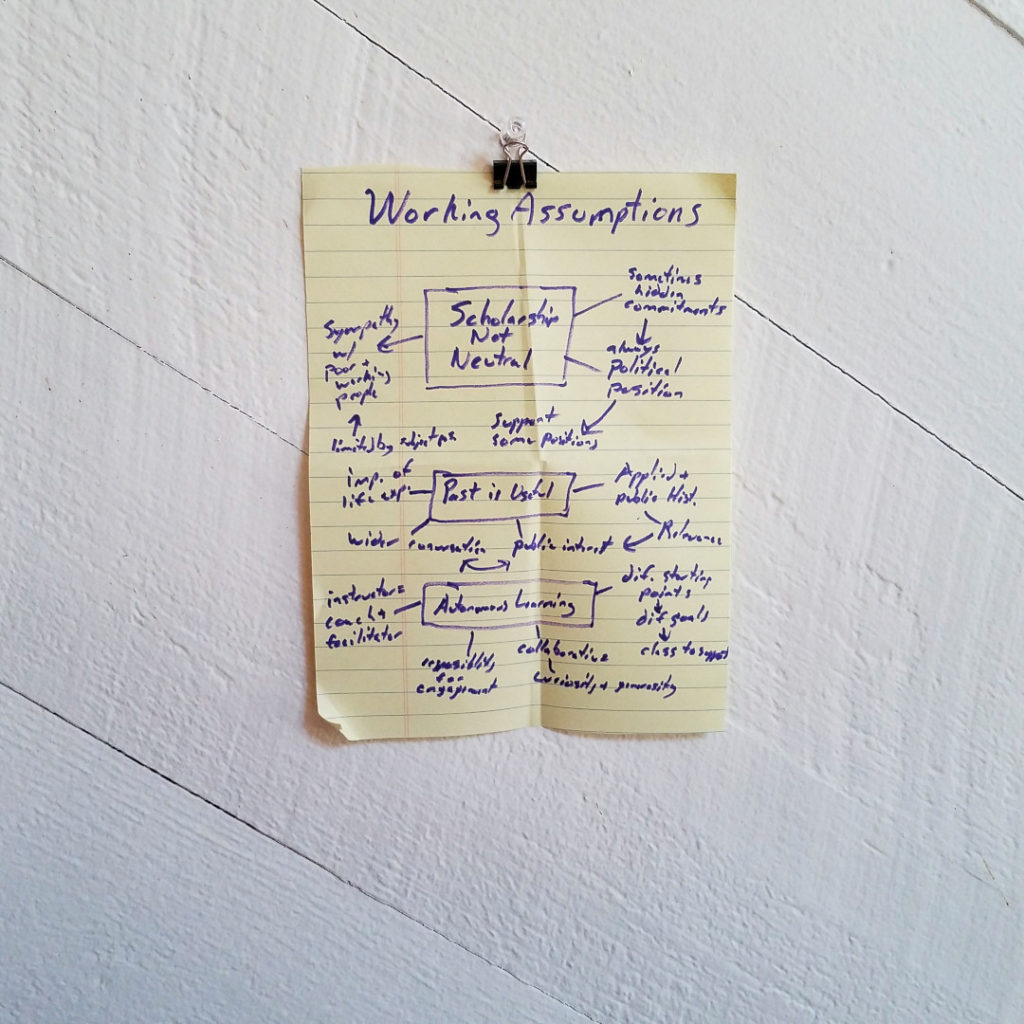How can a class be egalitarian, respectful, liberatory, and relevant?
March 23, 2021

How can a formal class be egalitarian, respectful, accessible, liberatory and relevant? It seems especially important classes like the ones I teach– classes about work, collaboration, solidarity economics, and public engagement. I want the elements of the class to be consistent with the vision that we explore in the content. Being in the class should give folks a glimpse into what could be possible. I want it to be a temporary utopia, prefiguring a better world. Simple enough, right?
I wanted to share what I’ve come up with for this semester.
I don’t have a lot of good models from my own history of schooling. Even the good classes taught be decent people were tinged in hierarchy, elitism, competitiveness, posturing, and busy-work. It was frustrating enough that I walked away from the whole thing for a while. But now, being back in a university setting, I’m trying to see a way to do things differently.
I’m still not totally convinced. No matter how an single class is designed, the context sets limits. There are issues baked into formal, institutional education and ultimately, I think there’s got to be a better way to organize learning. But that’s a post for another day.
In the meantime, I’ve been working on questioning my own assumptions and learned habits about how classes should work. I’m trying to carry through philosophical/ethical/political commitments into class design. Or, at least I want to approach these classes as authentically myself, rather than an image of how instructors are supposed to be. I’m also trying to articulate my approach so students have fair warning about how these classes are different from what they might expect.
Here’s are the “working assumptions” I put on the syllabus for this semester’s History of Work class:
This class is designed around a few working assumptions and commitments. You don’t have to agree with these ideas to do well, but the class will make more sense if you know where I’m coming from.
Scholarship is not neutral. Whether explicit, unconscious, or hidden, scholarship always occupies a political position and advances some interests over others. My sympathies are with poor and working people (as much as this is possible from my subject position) and this class has been designed from the perspective that the injustices and inequalities of the world are unacceptable, that these problems are ultimately structural, and that addressing them will require major transformations.
The past is interesting in so far as it informs an understanding of the present and inspires a vision for the future. History can be an amazing tool for making sense of the weirdness of the present. This class is rooted in an “applied history” or “public history” approach, meaning that questions are motivated by the needs and interests of people outside of professional academic circles and answers are developed with an eye toward contributing to a wider conversation.
Learning should be essentially self-directed and self-motivated. Each person in this class (me included) is starting from a different position and has different goals and interests. My goal is to organize this class so that we can spend the semester helping each other move toward those goals, learn, and grow. This class is meant to be a collaborative project in which we work together, sharing with, challenging, and questioning each other. My role is as a facilitator and coach who creates the space and opportunity to learn. As learners, we are each responsible for engaging with the material and with each other with curiosity and generosity. I can’t cajole you into learning. Instead, the more you put in, the more you’ll get out of the class. There will also be a lot of flexibility in the class and opportunities for you to shape your own learning and to collaborate with me and your classmates in shaping the class.